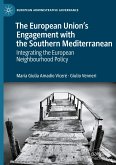This open access book explains why southern European countries with significant Muslim communities have experienced few religiously inspired violent attacks - or have avoided the kind of securitised response to such attacks seen in many other Western states. The authors provide a unique contribution to the literature on violent extremism - which has traditionally focused on countries such as France, the US and the UK - by studying the causes of relatively low rates of radicalisation in Greece, Italy and Spain.
The book explores many of the dynamics between (non) radicalisation and issues such as socioeconomic inequality, experiences of conflict, and systemic racism and other forms of discrimination. It establishes a new analytical framework for the development of, and resilience against, violent radicalisation in the region and beyond.
The book explores many of the dynamics between (non) radicalisation and issues such as socioeconomic inequality, experiences of conflict, and systemic racism and other forms of discrimination. It establishes a new analytical framework for the development of, and resilience against, violent radicalisation in the region and beyond.








